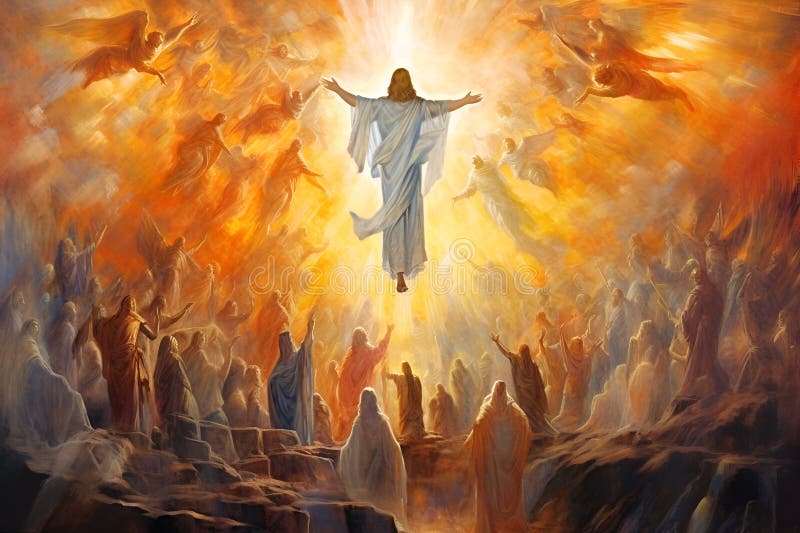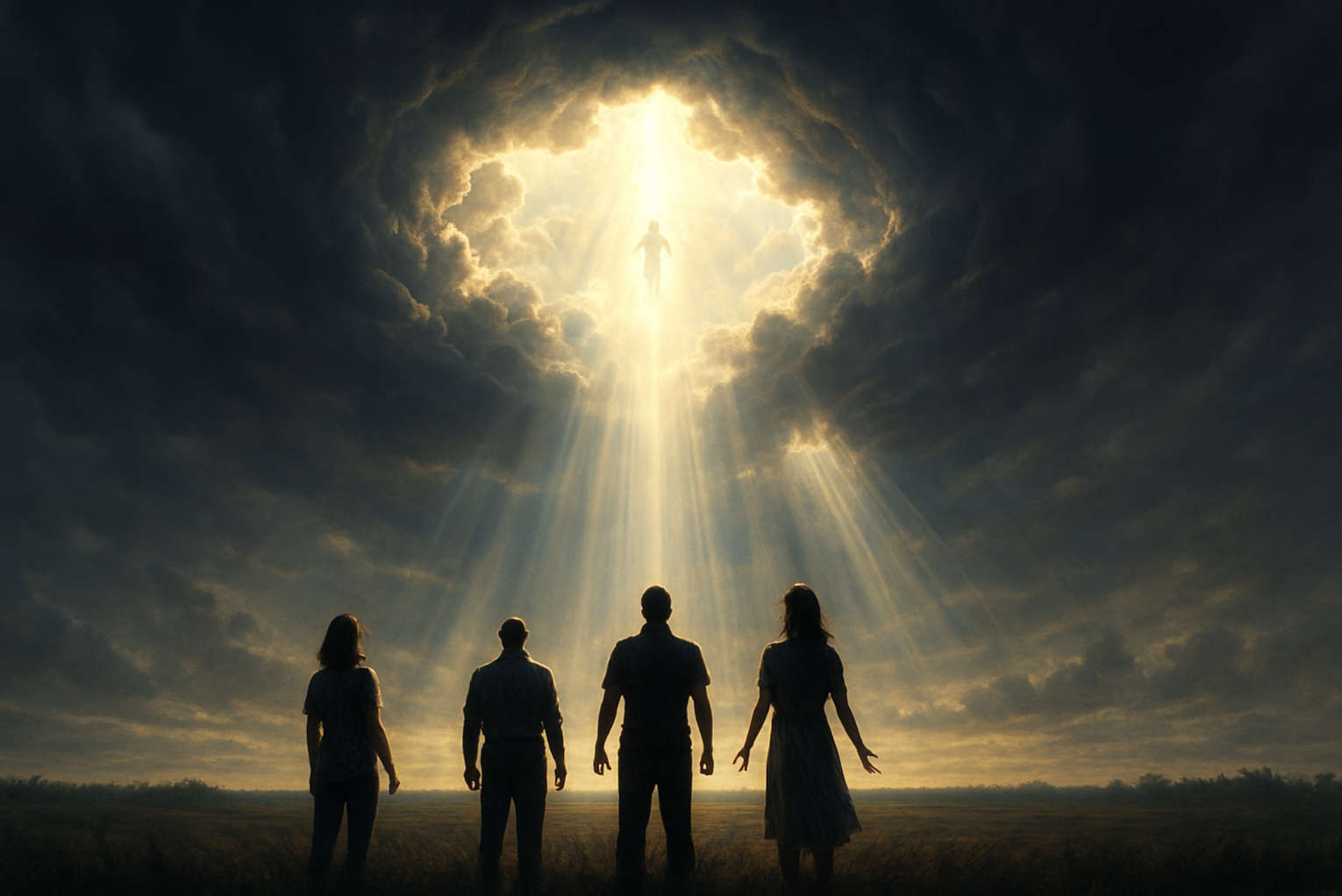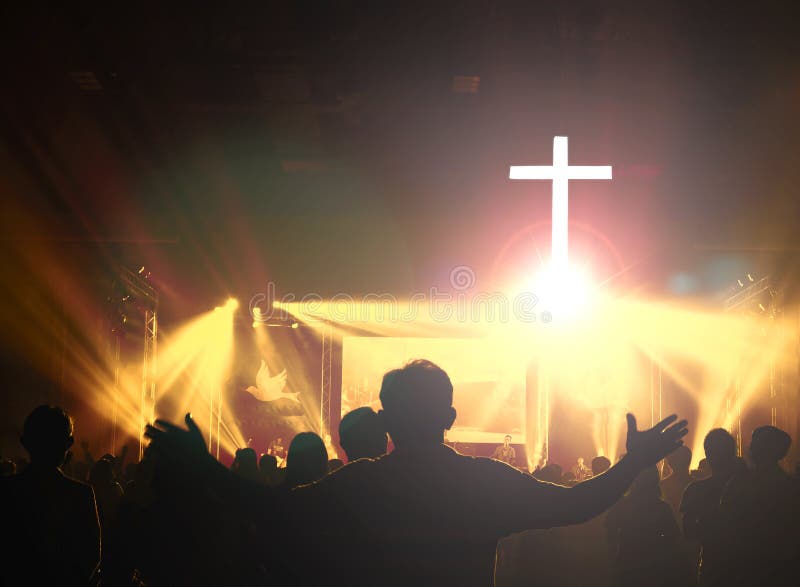The Christian Rapture: End Times Beliefs and Prophecy
The Christian Rapture: Complete Biblical Guide to End Times Beliefs and Prophecy

The Rapture represents one of Christianity's most debated and fascinating doctrines, capturing the hearts and minds of millions of believers worldwide. This eschatological belief centers on the promise that Jesus Christ will return to "catch away" His faithful followers before the tribulation period begins. Understanding the Rapture requires examining its biblical foundations, theological interpretations, and the various perspectives held by different Christian denominations.
Table of Contents
What is the Christian Rapture?

The Rapture is a Christian eschatological belief that describes the sudden removal of all true believers from Earth to meet Jesus Christ in the air. The term comes from the Latin word "rapturo," meaning "to catch up" or "to snatch away," which translates the Greek word "harpazo" found in 1 Thessalonians 4:17.
According to this doctrine, the Rapture represents the first phase of Christ's Second Coming, where believers - both living and dead - will be transformed and taken up to heaven. This event is believed to be instantaneous, occurring "in the twinkling of an eye" (1 Corinthians 15:52), and will precede a period of tribulation on Earth.
Key Characteristics of the Rapture
- Sudden and Secret: The Rapture is believed to occur without warning, invisible to the unbelieving world
- Universal for Believers: All true Christians, regardless of location or circumstances, will be taken
- Bodily Transformation: Believers receive glorified, imperishable bodies
- Removal from Earth: Christians are taken to heaven before the tribulation begins
Biblical Foundation for the Rapture

The doctrine of the Rapture primarily draws from several key biblical passages that describe the catching away of believers and Christ's return. Understanding these scriptures is essential for grasping the theological foundation of Rapture beliefs.
Primary Biblical Passages
1 Thessalonians 4:16-17 (NIV)
"For the Lord himself will come down from heaven, with a loud command, with the voice of the archangel and with the trumpet call of God, and the dead in Christ will rise first. After that, we who are still alive and are left will be caught up together with them in the clouds to meet the Lord in the air. And so we will be with the Lord forever."
1 Corinthians 15:51-52 (NIV)
"Listen, I tell you a mystery: We will not all sleep, but we will all be changed—in a flash, in the twinkling of an eye, at the last trumpet. For the trumpet will sound, the dead will be raised imperishable, and we will be changed."
Matthew 24:40-41 (NIV)
"Two men will be in the field; one will be taken and the other left. Two women will be grinding with a hand mill; one will be taken and the other left."
Supporting Scriptures
Additional biblical passages that support Rapture theology include:
- John 14:2-3: Jesus promises to prepare a place and return for His followers
- Revelation 3:10: Promise to keep believers from the hour of trial
- Revelation 4:1: John's vision of being called up to heaven
- 2 Thessalonians 2:6-8: The restrainer being removed before the Antichrist's revelation
Different Views on Rapture Timing

Christian theologians hold various views regarding when the Rapture will occur in relation to the tribulation period and Christ's Second Coming. These different perspectives have shaped denominational teachings and individual beliefs for centuries.
Pre-Tribulation Rapture
The pre-tribulation view holds that the Rapture occurs before the seven-year tribulation period begins. This is the most popular view among American evangelicals and fundamentalists.
Key Arguments:
- The church is promised deliverance from God's wrath (1 Thessalonians 5:9)
- The church is absent from Revelation's tribulation descriptions (chapters 6-19)
- The "restrainer" in 2 Thessalonians 2 represents the Holy Spirit in the church
- Distinguishes between Christ coming "for" His saints and "with" His saints
Mid-Tribulation Rapture
This view places the Rapture at the midpoint of the seven-year tribulation, after 3.5 years. Proponents believe the church will experience the first half of tribulation but be spared from God's direct wrath in the second half.
Post-Tribulation Rapture
Post-tribulation advocates believe the Rapture occurs at the end of the tribulation period, simultaneously with Christ's Second Coming. They argue that Christians will endure persecution but be protected from God's wrath during the tribulation.
Pre-Wrath Rapture
This newer view suggests the Rapture occurs in the final portion of the tribulation, after the persecution by Antichrist but before God's wrath is poured out on Earth.
Denominational Perspectives on the Rapture

Different Christian denominations hold varying positions on the Rapture doctrine, ranging from enthusiastic acceptance to outright rejection. Understanding these perspectives helps explain the diversity of beliefs within Christianity.
Denominations That Embrace Rapture Doctrine
- Fundamentalist Baptists: Strongly support pre-tribulation Rapture
- Pentecostals: Generally accept pre-tribulation view
- Assemblies of God: Official doctrine supports Rapture belief
- Plymouth Brethren: Historical advocates of Rapture theology
- Independent Evangelical Churches: Majority hold to Rapture doctrine
Denominations With Limited or No Rapture Teaching
- Catholic Church: Does not teach a separate Rapture event
- Eastern Orthodox: Focuses on general resurrection at Christ's return
- Lutheran Churches: Generally reject dispensational Rapture theology
- Anglican/Episcopal: Mixed views, typically not emphasizing Rapture
- Presbyterian (Reformed): Majority reject pre-tribulation Rapture
Historical Development of Rapture Doctrine

The modern Rapture doctrine as understood today developed relatively recently in Christian history, gaining prominence in the 19th and 20th centuries through the work of specific theologians and popular culture.
Early Development (1800s)
John Nelson Darby (1800-1882) is widely credited as the father of modern Rapture theology. This Irish Anglican priest developed dispensationalism and popularized the pre-tribulation Rapture view through his teachings and writings.
American Popularization
- C.I. Scofield Reference Bible (1909): Included extensive notes supporting Rapture doctrine
- Bible Conference Movement: Spread Rapture teachings throughout American evangelicalism
- Fundamentalist Movement: Adopted Rapture as core doctrine
Modern Era Influence
- Hal Lindsey's "The Late Great Planet Earth" (1970): Sold millions of copies worldwide
- Tim LaHaye's "Left Behind" series (1995-2007): Brought Rapture beliefs into popular culture
- Christian Broadcasting: Television and radio programs promoted Rapture teaching
Signs and Prophecies Related to the Rapture

Many Christians who believe in the Rapture actively watch for prophetic signs that they believe indicate the nearness of this event. These signs are drawn from various biblical prophecies about the end times.
Biblical Signs Often Cited
- Israel's Restoration (1948): Re-establishment as a nation
- Gospel Preached Worldwide: Global evangelization efforts
- Moral Decline: Increase in wickedness and departure from faith
- Natural Disasters: Earthquakes, famines, and pestilences
- Wars and Rumors of Wars: Global conflicts and tensions
- Knowledge Increase: Technological and scientific advancement
Contemporary Events and Interpretations
Modern Rapture believers often interpret current events through prophetic lenses:
- Middle East political developments
- Global economic systems
- Technological advances enabling global surveillance
- Religious persecution worldwide
- Natural disasters and climate change
The Imminency Factor
A key aspect of Rapture doctrine is the belief in its "imminence" - the idea that it could happen at any moment without warning. This has led to numerous date-setting attempts throughout history, though Jesus specifically warned against setting dates (Matthew 24:36).
Theological Implications and Debates

The Rapture doctrine raises several important theological questions and has sparked considerable debate within Christianity. These discussions often center on hermeneutics, eschatology, and the relationship between Israel and the Church.
Hermeneutical Approaches
- Literal Interpretation: Taking prophetic texts at face value
- Symbolic/Allegorical: Viewing prophecies as symbolic representations
- Contextual Analysis: Understanding passages within historical context
- Progressive Revelation: Building doctrine on cumulative biblical evidence
Major Theological Questions
- Is the Rapture a separate event from the Second Coming?
- Will the Church be present during any portion of the tribulation?
- What is the relationship between Israel and the Church in prophecy?
- How should prophetic timing be interpreted?
Frequently Asked Questions About the Christian Rapture
What happens to children and infants during the Rapture?
Will people have a second chance to be saved after the Rapture?
Do all Christians believe in the Rapture?
How should Christians prepare for the Rapture?
What about Christians who die before the Rapture?
Is date-setting for the Rapture biblical?
Impact of Rapture Beliefs on Christian Life and Culture

Belief in the Rapture significantly influences how many Christians view their daily lives, future planning, and evangelistic efforts. This doctrine shapes priorities, motivations, and worldview in profound ways.
Positive Impacts
- Evangelistic Urgency: Motivates sharing the Gospel due to time constraints
- Holy Living: Encourages moral purity in anticipation of Christ's return
- Comfort in Suffering: Provides hope during difficult circumstances
- Eternal Perspective: Emphasizes heavenly values over earthly concerns
Potential Challenges
- Escapist Mentality: May discourage engagement with social issues
- Anxiety and Fear: Can create worry about being "left behind"
- Date-Setting Problems: Failed predictions can damage faith
- Divisiveness: Disagreements over timing can divide churches
Conclusion: Understanding the Rapture in Christian Faith

The doctrine of the Christian Rapture remains one of the most captivating and debated topics in modern Christianity. Whether viewed as a literal future event or symbolic teaching, it continues to shape the faith, hope, and daily lives of millions of believers worldwide.
Understanding the Rapture requires careful biblical study, awareness of different theological perspectives, and respect for the sincere faith of those who hold varying views. While Christians may disagree on timing and interpretation, most share the common hope of Christ's return and the promise of eternal life with Him.
For those who believe in the Rapture, it serves as a powerful motivation for holy living, evangelistic fervor, and watchful anticipation. For others, it represents an important study in biblical interpretation and church history. Regardless of one's position, the Rapture doctrine highlights the Christian hope of redemption and the ultimate victory of good over evil.
Ready to Explore Your Faith Deeper?
Whether you're seeking to understand the Rapture doctrine or exploring Christian beliefs, continue your spiritual journey with study, prayer, and fellowship with other believers.
Study the Scriptures, pray without ceasing, and be ready for His return - whenever that may be.


